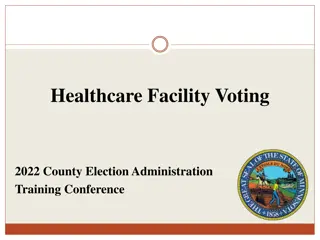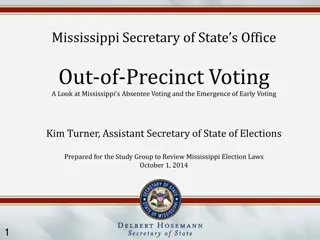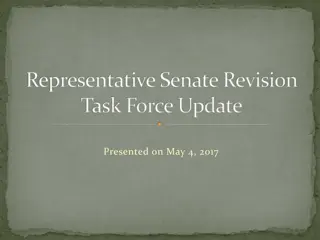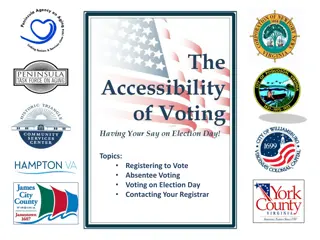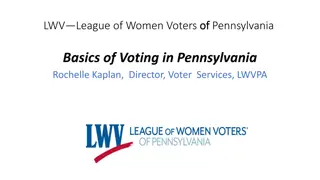Impact of Racism on Voting Behavior
Exploring the influence of racism on voting choices, analyzing data on how Obama fared in comparison to other Democratic candidates, and discussing factors contributing to racial bias in elections. Nate Silver's insights on education levels, rural population, and suggestions for fostering cross-racial interactions are also examined.
Download Presentation

Please find below an Image/Link to download the presentation.
The content on the website is provided AS IS for your information and personal use only. It may not be sold, licensed, or shared on other websites without obtaining consent from the author.If you encounter any issues during the download, it is possible that the publisher has removed the file from their server.
You are allowed to download the files provided on this website for personal or commercial use, subject to the condition that they are used lawfully. All files are the property of their respective owners.
The content on the website is provided AS IS for your information and personal use only. It may not be sold, licensed, or shared on other websites without obtaining consent from the author.
E N D
Presentation Transcript
GCA FORUM SUMMER 2019
WELCOME Bathrooms are located around the corner to the right. We have prepared material for the entire hour. We want you to be engaged. This meeting is for you! Please ask us questions!!
SHORT INTRODUCTION Please introduce yourself! Name Department
AGENDA Invoicing at GCA Understanding Sponsor Requirements Deficit and Expense Transfers Closing Process Refresher GrantTracker Email Contacts Training Grant Season Survey Next GCA Forum
INVOICING AT GCA How do we will bill for different awards? Austin Campbell
OVERVIEW Three standard invoicing types Scheduled payment Milestone Cost reimbursable (interim, final, special handling) GCA uses a separate system for invoicing For cost reimbursable awards, these are the same transactions that show in MyFD Scheduled payments are entered at budget setup Milestone payments are either entered at budget setup or reduced as billed (if the payments are unclear or deliverables are variable) GCA does not invoice while budgets are in advance status Invoicing is put on hold and charges are billed when the budget is out of advance
SCHEDULED PAYMENT Clear schedule of payments in the award Invoices are automatically generated 2x a month Beginning and mid-month, based on the calendar All payments scheduled for that month are picked up in the batch (i.e. if your payment is scheduled for 8/30, it will get picked up in the 8/1 batch) If there are new payments entered or anything missed in the first batch of the month, it will get picked up in the mid-month batch Invoices are either automatically emailed, mailed, or internal (receivable only, if the sponsor does not require an invoice)
MILESTONE Payments are contingent on deliverables/progress made on the project Usually set amounts for different deliverables, but can also be reduced as billed which means the payments might be unclear or billed at a rate (i.e. $4,000 is allocated for sampling, but only 3 samples at $250 each need to be billed) These are not automatically generated Department needs to notify GCA when deliverables can be invoiced for GCA does run a report of unbilled milestones to follow-up on each month Analysis is performed and communication is sent to the department if necessary Question for campus: Is this helpful? Invoices are either emailed, mailed, or internal (receivable only, if the sponsor does not require an invoice from GCA or after we receive a cash payment) Some may require special handling to submit (sponsor format or online submission) or the department submits on behalf of GCA
COST REIMBURSABLE Invoicing based on actual expenditures Must wait for prior month to close For straightforward invoicing (no special handling required) invoices are generated automatically 3x a month Starting after the prior month closes and at ~10 day intervals following These are either automatically emailed or mailed to the sponsor For budgets with special invoicing requirements, invoices are generated automatically 1x a month (mid-month) These could require a sponsor format invoice, online submission, department backup, or any other special attention prior to submission (or special submission requirements) GCA previously had to manually email invoices to personal emails. Last October, we implemented a new process allowing for automatic billing to individuals. This has saved our invoicing team from having to manually submit over 200 invoices a month!
FINAL INVOICES Final invoices are issued for cost reimbursable budgets Final billing or zero dollar final Require extra analysis from GCA to ensure budgets are ready for final invoicing Automatically generated 2x a month (after FAD) 2 day process review of the budget and submission day Some require special handling on day 2 Some need to be removed from the automatic batch and generated manually i.e. pending supplement/extension, pending transactions, other issues Unlike interim invoices, we typically bill final invoices through the date generated and a billing period does not show
ADDITIONAL INFORMATION When invoices are generated, they are visible in GrantTracker the next day If GCA is generating a sponsor format invoice, the invoice showing in GrantTracker may not be what was submitted to the sponsor You should receive a GrantTracker with a copy of what was submitted for your reference Separate parent/sub budget billing if the sponsor requires these to be billed separately, please let us know Much cleaner if handled proactively (less need to void invoices and shuffle transactions in our invoicing system)
UNDERSTANDING SPONSOR REQUIREMENTS AKA know your award! Cheryl Haycox and Doug Pistoresi
TIPS FOR COMPLIANCE Read the award document Identify the applicable terms and conditions Note any special terms and conditions* Note reporting requirements Know which systems are needed, and that you have the necessary access Does the sponsor require their own format or can we use UW forms? What are the due date for the deliverables? Be familiar with the sponsor s terms, conditions and regulations Understand the applicable regulations and deadlines Ask for help!
#1 SET LIMITS ON THE MAXIMUM HOURLY RATE THEY WILL PAY FOR THE INVESTIGATORS TIME WHICH IS TRACKED IN THEIR SYSTEM:
In this case the sponsor refused to pay our invoices because the hourly rate exceeded the rate in the agreement and because there was an Investigator on the award that wasn t named in the table.
#2 #2 Sponsor has specific deliverables and due dates lots of them!
This award is clear in the requirements and included templates for the various reports and invoices. There s just a lot to know. The department must prepare the invoice and report each quarter.
INVOICING DUE TO REBUDGETING RESTRICTIONS
#4 AWARDS ISSUED IN FOREIGN CURRENCY
YES, WE HAVE NO U.S. DOLLARS Awards issued in foreign currency carry additional risk to the departments because the US dollar amount is unknown until the payment comes in. The party with the most risk is the party whose currency is NOT on the award document-they are at the mercy of the rates. Because the amount is paid after the award is set up, it s easy to over-spend.
HOW ARE THESE AWARDS SET UP? OSP receives the award document and sees that the funding is in foreign currency:
OSP ESTIMATES THE DOLLAR AMOUNT FOR THE EGC1 AT THE TIME OF AWARD Sites like OandA or X-Rates provide general exchange rates These are outdated as soon as 1 day passes, and do not include bank fees, which are added to the rate, or the rate used by the foreign bank (buying US versus selling Euros) In this example, we re recreating the scene to show that the average worth for 30,000 Euros on 8/21/17 is $35,437
THE ESTIMATED AMOUNT STAYS ON THE EGC1 AND SUBSEQUENT FA
OSP AND GCA INCLUDE NOTES ON THE FUNDING ACTION NOTIFICATION
ACTUAL FUNDS The wire came in to the UW on 11/7/2017, 45 days after the eFA was prepared eFA was for $35,405, actual funding received was $34,191. This ended in a difference of $1,214. If the department spent to the estimated amount, they would have a deficit of $1,214
BEST PRACTICES Pre-Award 1. Negotiate for the award to be in US Dollars 2. Know when and how payments will be made. The more time between now and the payments, the more opportunity for rate fluctuation or influence by world events. 3. The stronger the dollar gets, the less money you will get 1. 1 Euro on 1/2/2014 was worth $1.34, on 3/6/2016 the same Euro was worth $1.09 1. Multiply this by 1000 and you have a shortfall of $2,500
POST AWARD Read your Funding Action! Both OSP and GCA try to put helpful notes on the notification Use the Receipt amount in GrantTracker to monitor how much money you have
Be concerned if a sponsor asks to change from paying in USD to their currency-it probably means the dollar is strong, and they ll need to spend more of their currency to buy the number of dollars needed to meet the award amount. Questions or comments?
DEFICIT TRANSFERS VS. EXPENSE TRANSFERS Michelle Davis
WHEN TO SUBMIT A DEFICIT TRANSFER All charges are allowable per the award agreement, but budget is overspent.
WHERE CAN THE DEFICIT GO? Non-sponsored budgets: Budget is in the current biennium Budget is in status 1 or 3 And one of the following: Budget prefix is between 01 and 10, 74, or 75 Budget type is 06 Budget type/class is 05-34, 05-57, 05-54, 05-52 Note: the deficit transfer will be a lump sum transfer transaction details won t be retained.
HOW TO SUBMIT A DEFICIT TRANSFER Online transfer tool in GrantTracker: Note: if transferring the deficit on a sub budget or transferring the deficit to more than one budget, please send a request to GCA with the budget numbers to transfer the deficit to and amounts.
WHEN TO SUBMIT AN EXPENSE TRANSFER Charges intended for the award posted to the wrong budget and need to be transferred on. To transfer off charges that are entirely or partially unallowable on the award. Charges are allowable, but posted in the incorrect object/project code.
GIM 15: TRANSFER OF EXPENDITURES BETWEEN BUDGETS Cost transfers into an award budget must be made within 90 days of when the error was discovered OR 120 days of the transaction. When making transfers, department must provide sufficient evidence that the charges are allocable to the award: If within 90 days: provide reason for the transfer and how the charge benefits the grant budget. If 120 days or more: also include an explanation for why the charge was identified and transferred late.
HOW TO SUBMIT AN EXPENSE TRANSFER Expense Transfer tool in MyFD: Note: if you need to transfer off just benefits, please send a request to GCA via email or GrantTracker and we will take care of it.
COMPLIANCE RISKS Frequent or large transfers raise questions about award management. In the case of expense transfers, could impact financial/effort reporting and/or invoicing depending on the timing of the transfers.
LIGHT READING/LEARNING Grant and Contract deficit procedures: https://finance.uw.edu/gca/award-lifecycle/closing- your-award/grant-contract-deficit-procedures University Deficit Policy: http://opb.washington.edu/content/deficit-resolution-policy Deficit transfer instructions: https://finance.uw.edu/gca/award-lifecycle/closing-your- award/deficit-transfer-instructions GIM 15: https://www.washington.edu/research/policies/gim-15-transfer-of-expenditures- between-budgets/ eLearning on Cost Transfers: https://f2.washington.edu/fm/pafc/content/cost-transfers- elearning
CLOSING PROCESS REFRESHER Azalea Vasquez
FINAL ACTION DATE The final action date of your budget is based on the due date of your final report and/or invoice We cannot change it unless we receive modifications/amendments from the sponsor No Cost Extension Supplement/Extension It is the last day your budget is open to expenditures
FINAL ACTION DATE After the FAD, your budget will automatically change from status 1 (open to revenue and expenditures to status 3 (closed to revenue and expenditures, open to expense transfers) GCA begins work on final invoices and financial reports as soon as the FAD has passed without departmental notification. Final invoices will go out 2 days after the FAD Final reports which are more complicated may have a wider cushion between the FAD and submission due date to allow GCA sufficient time to prepare each budget s final reconciliation
LATE POSTING CHARGES If you expect late-posting charges or credits, you must inform GCA no later than the Final Action Date, or these charges or credits will not be included in your final invoice or report. In the future we will more closely scrutinize these requests Copy of pending invoice If the sponsor refuses to send us the final payment due to a late invoice/report your department is responsible for the deficit You put the University of Washington at risk for non-compliance
LATE POSTING CHARGES If a final invoice or report has already been submitted to the sponsor you will need to follow up with them regarding the late posting charges and get approval for a revised invoice/report We need the approval in writing and it must be submitted with the Pending Transaction Spreadsheet to GCA
BUDGET TO STATUS 4 Due to Biennium close we were not allowed to put budgets in status 4 in July GCA was able to resume using status 4 on August 5th We have a backlog of budget closings from July on
BUDGET TO STATUS 4 If you sent GCA a request to close out your budget please allow up to 4 weeks for us to complete your request You will be notified once that request has been completed.
GRANTTRACKER EMAIL CONTACTS Setup and Updates Susan Wilbanks
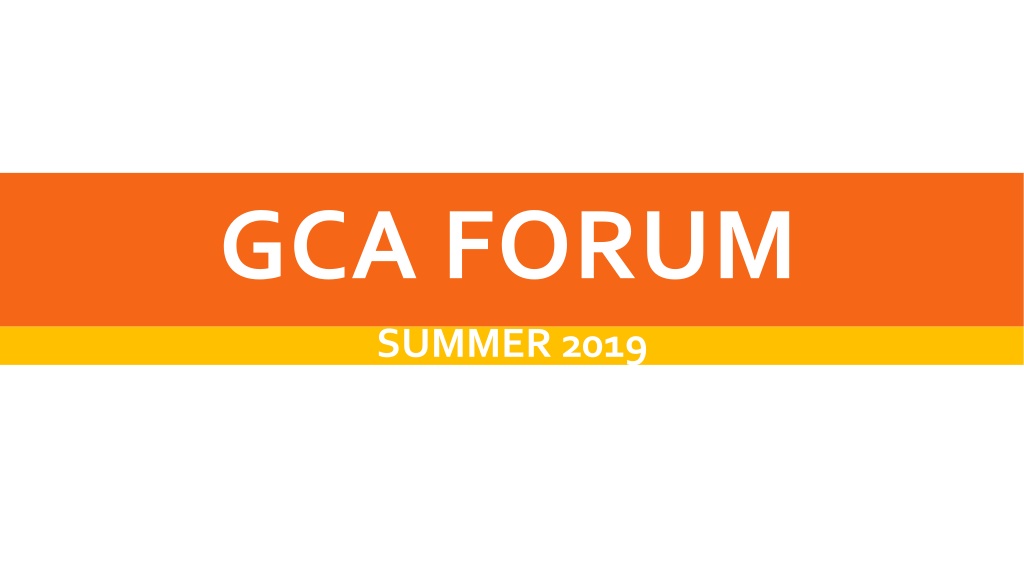
 undefined
undefined








